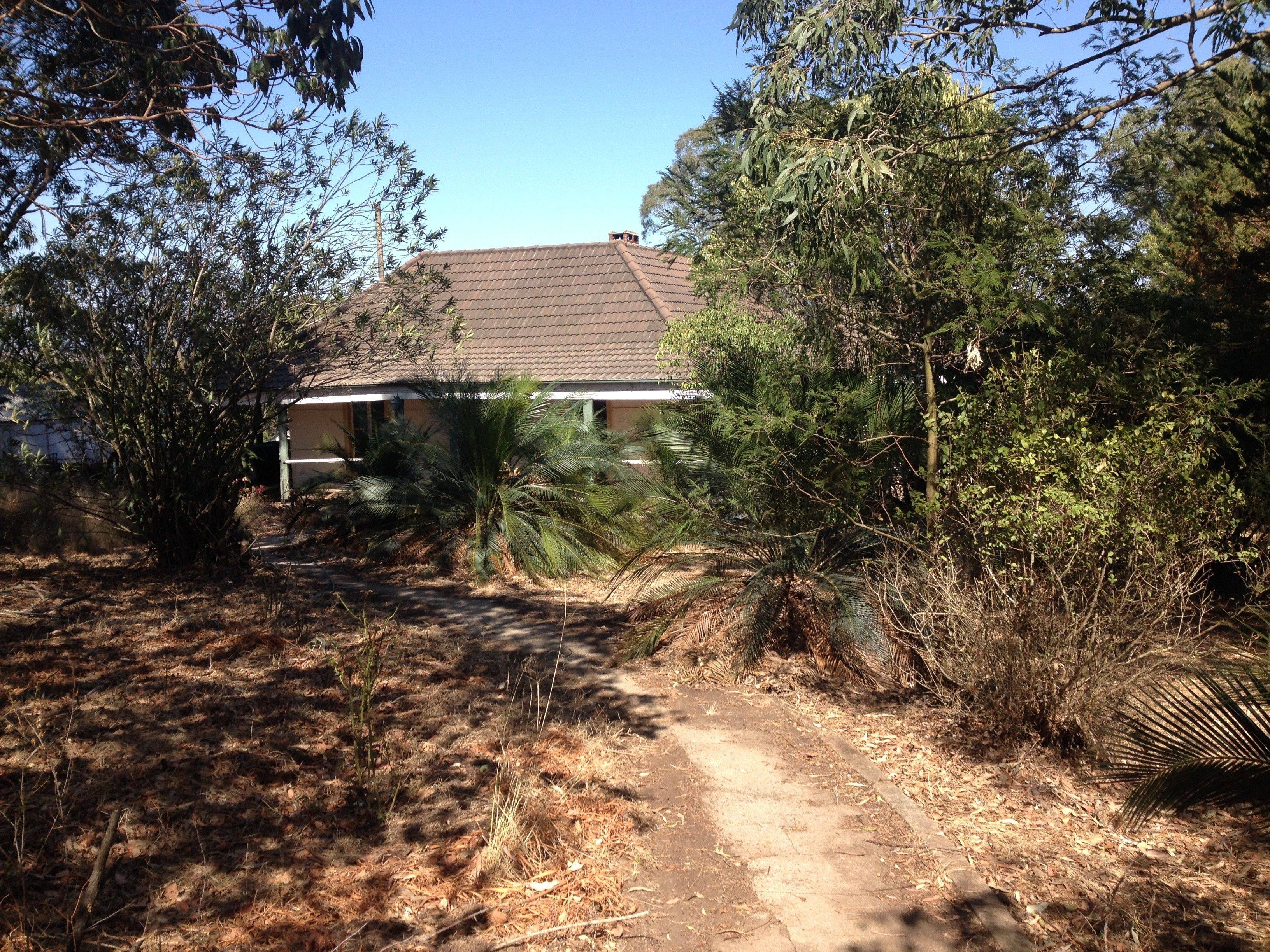Urban off grid living – Urban off-grid living represents a growing movement challenging traditional lifestyles. It involves minimizing reliance on centralized utilities like electricity and water grids, instead utilizing renewable energy sources and sustainable practices within urban environments. This shift towards self-sufficiency is driven by environmental concerns, a desire for greater independence, and a growing awareness of the fragility of conventional infrastructure. From repurposed apartments to innovative townhouses, individuals are forging new paths towards a more resilient and eco-conscious urban existence.
This article delves into the practical aspects of urban off-grid living, exploring various energy solutions, water management techniques, waste reduction strategies, and food production methods. We’ll examine the legal and regulatory challenges, showcasing inspiring examples of successful urban off-grid projects. Ultimately, we aim to provide a comprehensive overview of this increasingly relevant lifestyle choice.
Defining Urban Off-Grid Living
Urban off-grid living represents a growing movement challenging traditional reliance on centralized utilities. It involves reducing or eliminating dependence on municipal water, electricity, and sewage systems within a densely populated urban environment. This isn’t about complete isolation; rather, it’s a strategic reduction in reliance on the grid, often incorporating sustainable and resilient practices. The degree of off-gridness varies significantly depending on individual circumstances and resources.Urban off-grid living encompasses a spectrum of approaches.
It’s not simply a binary choice between fully grid-connected and entirely self-sufficient. Instead, it’s about actively minimizing reliance on the grid where feasible, maximizing efficiency, and incorporating renewable energy sources. This might mean a complete overhaul of a home’s systems or simply incorporating small, incremental changes to reduce consumption.
Examples of Urban Off-Grid Setups
The practical application of urban off-grid living differs based on the dwelling type and its limitations. A high-rise apartment presents different challenges than a detached house or a townhouse. For instance, a homeowner in a detached house might install solar panels, a rainwater harvesting system, and a greywater recycling system. In contrast, an apartment dweller might focus on energy-efficient appliances, minimizing water usage, and composting food waste.
Townhouse residents might explore shared community initiatives like communal composting or shared solar panel arrays. Each scenario requires a tailored approach to maximize off-grid capabilities within the constraints of the living space and building regulations.
Key Characteristics Differentiating Urban Off-Grid Living from Traditional Living
The core difference lies in the conscious effort to reduce dependence on external utilities. Traditional living relies heavily on the readily available electricity, water, and sewage services provided by the city. Urban off-grid living, conversely, prioritizes self-sufficiency through strategies like solar power, rainwater harvesting, greywater recycling, and composting. This often involves a greater understanding of resource management and a commitment to minimizing environmental impact.
The level of technological sophistication also varies; some urban off-grid systems may be relatively simple, while others may be highly complex and technologically advanced.
Obtain access to sustainable off the grid living to private resources that are additional.
Comparison of Urban, Suburban, and Rural Off-Grid Living
While all three aim for reduced grid dependence, the context significantly influences the methods and challenges. Rural off-grid living often involves larger properties with greater space for renewable energy systems like wind turbines and larger-scale water collection. Suburban off-grid living might utilize similar technologies but on a smaller scale, constrained by property size and homeowner association regulations. Urban off-grid living faces the most significant constraints, often relying on smaller-scale solutions integrated into existing infrastructure.
The availability of land for solar panels, the feasibility of rainwater harvesting, and the complexity of waste management are all significantly impacted by the density and infrastructure of the surrounding urban environment. For example, a rural off-grid home might have its own well, while an urban dwelling would rely on rainwater harvesting or water filtration systems.
Waste Management and Composting in Urban Off-Grid Living

Urban off-grid living, while offering numerous environmental and personal benefits, presents unique challenges in waste management. Minimizing waste generation and implementing efficient composting strategies are crucial for successful and sustainable off-grid urban existence. Effective waste management is not just about disposal; it’s about resource recovery and reducing the environmental footprint of a household.
Composting Techniques for Urban Environments
Several composting techniques are adaptable to the confines of urban apartments or small houses. These methods vary in complexity and space requirements, allowing for customization based on individual needs and living spaces. Choosing the right method depends on factors like available space, the volume of organic waste generated, and personal preferences.
Types of Composting Systems and Their Comparative Analysis
A variety of composting systems cater to different urban settings. Each system presents advantages and disadvantages that should be carefully considered.
| Waste Type | Management Method | Storage | Disposal |
|---|---|---|---|
| Food Scraps | Composting (Bokashi, Worm, or Traditional) | Sealed container (Bokashi), Worm bin, Compost bin | Finished compost used for gardening or disposed responsibly if not suitable |
| Yard Waste (if applicable) | Composting (Traditional or Vermicomposting) | Compost bin, designated area | Finished compost |
| Paper and Cardboard | Recycling | Designated recycling bin | Curbside pickup or designated recycling center |
| Plastics and Metals | Recycling | Designated recycling bin | Curbside pickup or designated recycling center |
| Glass | Recycling | Designated recycling bin | Curbside pickup or designated recycling center |
| Non-recyclable Waste | Proper Disposal | Sealed trash bags | Municipal waste collection |
Methods for Waste Reduction in Urban Off-Grid Settings
Minimizing waste generation is paramount in urban off-grid living. Strategies include mindful consumption, reducing reliance on single-use plastics, opting for reusable alternatives, and embracing a zero-waste lifestyle. Careful planning of grocery shopping, bulk buying of staples, and composting food scraps significantly reduce waste volume. Repairing instead of replacing items extends their lifespan, contributing to waste reduction.
Comprehensive Waste Management Plan for an Urban Off-Grid Home
A comprehensive waste management plan is crucial for a sustainable off-grid lifestyle. This plan needs to integrate composting, recycling, and responsible disposal of non-recyclable waste. Careful sorting of waste at the source is essential for efficient management. The table above Artikels a sample plan, but individual plans may need adjustment based on specific needs and local regulations.
Legal and Regulatory Aspects of Urban Off-Grid Living: Urban Off Grid Living

Urban off-grid living, while appealing for its sustainability and self-sufficiency, faces significant legal and regulatory hurdles. These vary widely depending on location, impacting everything from permitted building modifications to the legality of energy generation and waste disposal methods. Navigating this complex landscape requires careful planning and proactive engagement with local authorities.
Potential Legal Challenges in Different Jurisdictions
The legality of urban off-grid living is far from uniform across different jurisdictions. Some cities may have relatively permissive zoning regulations, while others maintain strict codes that actively prohibit many off-grid practices. For example, installing solar panels might be straightforward in one area, while another might require extensive permits and inspections due to building codes or concerns about visual impacts.
Similarly, water harvesting systems may face resistance due to concerns about water rights and public health. Even seemingly simple aspects, like composting toilets, can encounter legal obstacles related to sanitation regulations. The lack of standardized regulations across different regions creates significant challenges for individuals seeking to embrace this lifestyle.
Examples of Local Regulations Impacting Off-Grid Systems
Local regulations frequently impact the implementation of off-grid systems. Building codes often dictate minimum standards for electrical wiring, plumbing, and structural integrity, which may clash with the design of off-grid systems. Zoning ordinances might restrict the placement of solar panels, wind turbines, or rainwater harvesting systems based on setbacks, height restrictions, or aesthetic considerations. Health and safety regulations can impose requirements on wastewater treatment and waste disposal, potentially making certain off-grid approaches unfeasible.
For example, a city might prohibit the use of composting toilets unless they meet specific standards for odor control and leachate management. Furthermore, some jurisdictions might have regulations concerning the generation and storage of renewable energy, requiring permits and inspections for systems exceeding certain capacities.
Strategies for Navigating Legal Hurdles and Obtaining Necessary Permits
Successfully navigating the legal landscape of urban off-grid living necessitates a proactive and informed approach. Thorough research into local regulations is crucial, beginning with zoning codes, building codes, and health and safety regulations. Consulting with legal professionals specializing in environmental law or land use planning can provide invaluable guidance on navigating complex regulations. Engaging with local authorities early in the planning process, presenting well-documented proposals, and demonstrating compliance with all relevant regulations can significantly improve the chances of obtaining necessary permits.
Seeking support from community organizations or advocacy groups focused on sustainable living can also provide assistance and networking opportunities. Transparency and collaboration with local officials are key to successfully implementing an off-grid lifestyle within the bounds of the law.
Summary of Legal and Regulatory Aspects, Urban off grid living
| Jurisdiction | Relevant Regulations | Challenges | Solutions |
|---|---|---|---|
| City A (Example: San Francisco, CA) | Building codes, zoning ordinances, water regulations | Strict building codes may conflict with off-grid designs; permitting process can be lengthy and complex. | Thorough research of regulations, early consultation with city officials, hiring a consultant experienced in navigating permitting processes. |
| City B (Example: Austin, TX) | Zoning regulations, health and safety codes, renewable energy incentives | Zoning may restrict the placement of renewable energy systems; obtaining permits for non-standard systems can be challenging. | Collaborating with city officials, highlighting the environmental benefits of off-grid systems, demonstrating compliance with all relevant regulations. |
| City C (Example: Portland, OR) | Building codes, environmental regulations, wastewater treatment standards | Strict regulations regarding wastewater disposal; potential conflicts between off-grid systems and building codes. | Exploring alternative wastewater treatment methods that meet city standards, working with a qualified contractor experienced in off-grid systems. |
Embracing urban off-grid living requires careful planning, resourcefulness, and a commitment to sustainable practices. While challenges exist—from navigating local regulations to optimizing energy systems—the rewards are significant. The growing number of successful projects demonstrates the feasibility and appeal of this approach, offering a pathway to greater self-reliance, reduced environmental impact, and a more connected relationship with the urban landscape.
As awareness of environmental sustainability grows, urban off-grid living is poised to become an increasingly important aspect of urban design and living.
